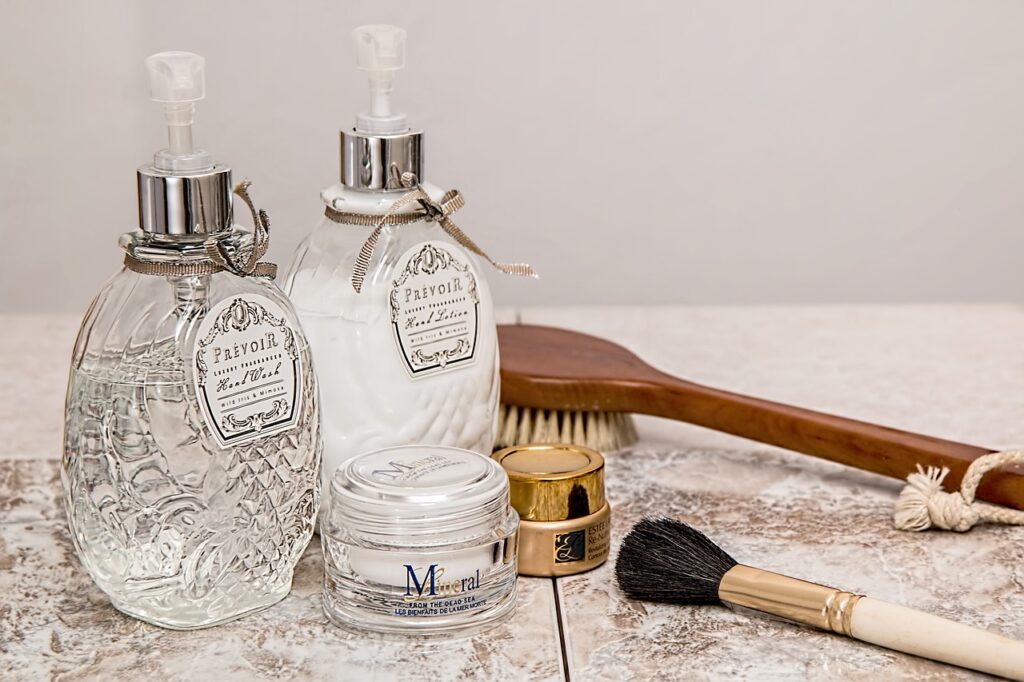As winter approaches, the drop in temperature and humidity can leave your skin feeling parched and out of sorts, as the bitter cold strips away moisture, causing dryness, irritation, and discomfort. According to dermatologist Alexandra Coromilas, MD, ‘Dry skin is a common cause of unhealthy skin,’ underlining the necessity of maintaining skin health as it serves as your body’s first defense against allergens, irritants, and infections.
The first step in getting that winter glow is to understand the science behind the dry skin. It is the job of the skin’s outer most layer of the stratum corneum to retain the water. But during that time, when the cold weather, low humidity levels make you feel dry indoors and outdoors, you’re unlikely to replace the natural oil that dehydrates your skin. While Dr. Coromilas acknowledges how essential it is to drink water for the overall body hydration, she concludes that skincare regimen is crucial in keeping the skin hydrated.
This problem is often worsened by factors like aging and certain medications, leading to decreased natural oil production and increased water loss from the skin’s surface. Dr. Coromilas emphasizes, ‘Your skin is your first line of body defense, acting as a crucial barrier between you and the external environment,’ highlighting how dry skin can leave you vulnerable to environmental aggressors and infections.
So, what does healthy skin actually look like? Generally, it appears soft, smooth, and evenly textured without flaking or peeling. To maintain this healthy glow throughout the winter months, making a few adjustments to your skincare routine can be highly beneficial.

Begin with cleansing, ensuring to treat your skin gently. Opt for a cleansing cream or lotion, as these are less likely to strip away your skin’s natural oils compared to foaming cleansers. For sensitive skin, oil cleansers are an excellent choice, as they offer both cleansing and moisturizing benefits, ensuring your skin doesn’t feel tight or dried out after washing.
Product on Amazon: JUNO & Co. Clean 10 Cleansing Balm 10 Ingredients Makeup Remover 85g / 3.0oz
Brand: JUNO & Co.
Price: $14.99
Rating: 4.6 with 16,925 ratings
Another method for keeping your skin in top condition is to alter your bathing routine. However, shorter showers or baths can be a good thing — too much time in the bath can strip away the skin’s natural oils. It’s also a good idea to keep shower water cool rather than hot; hot water can wash away the skin’s natural oils. Gentle, fragrance free soap or moisturizing non soap cleansers are other options to consider. Dr. Coromilas advises: ‘Wet skin is best trapped in moisture after you bathe or shower, applying moisturizer immediately.’

Like most winters, skin is also in need of miniaturization too. Dermatologists also highlight how changing the lotion to a thicker cream or ointment can really help your skin during these months. Glycerin, hyaluronic acid, and even ceramides are your allies at work, drawing in moisture and helping to strengthen the skin barrier. If you don’t do this, try applying your moisturizer on slightly damp skin to seal in hydration more easily.
Product on Amazon: CeraVe Moisturizing Cream | Body and Face Moisturizer for Dry Skin | Body Cream with Hyaluronic Acid and Ceramides | Daily Moisturizer | Oil-Free | Fragrance Free | Non-Comedogenic | 19 Ounce
Brand: CeraVe
Price: $ 17.78
Rating: 4.7 with 128,504 ratings

The right moisturizer is a decision that cannot be ignored. In winter creams tend to be better as they have more oil and less water than lotions, which means they are more moisturizing. An ointment can help your hands and feet — ointments block water loss and reinforce the skin’s protective barrier, improving hydration. The good news is that keeping humidity high in your home is another ally in the fight against dry indoor air—provided you have a humidifier.
Product on Amazon: Cetaphil Face & Body Moisturizer, Hydrating Moisturizing Cream for Dry to Very Dry, Sensitive Skin, NEW 16 oz 2 Pack, Fragrance Free, Non-Comedogenic, Non-Greasy
Brand: Cetaphil
Price: $ 18.99
Rating: 4.8 with 7,482 ratings

For me, the non-negotiable part is a minimum of the best quality sunscreen in your daily routine, even during winter. UV protection is still necessary, and the sun’s rays never go away. Go for SPF 30 or above sunscreen and if you can go for a mineral-based one with zinc or titanium which is less likely to okay irritation. Reflective surfaces, like snow, can increase exposure to UV if you’re involved in winter sports, so remember that.
Product on Amazon: EltaMD UV Clear Face Sunscreen SPF 46, Oil Free Sunscreen with Zinc Oxide, Dermatologist Recommended Sunscreen
Brand: EltaMD
Price: $ 44.-00
Rating: 4.6 with 43,988 ratings
So when you’re looking to moisturize, become your own expert and look for ingredients like hyaluronic acid and glycerin that attract the moisture to your skin, and ceramides that help replenish your natural lipid levels. Harsh chemicals found in many products should be avoided because they can irritate or cause allergic reactions.

Winter weather doesn’t just affect what goes on in the skin on your face and body, fingers and toes can get dry and chapped too. Lip balms with preservatives are not recommended because they may cause irritation and petroleum jelly is better. On top of that, don’t lick your lips, as that can make dryness even worse and cause crack.
Product on Amazon: Vaseline Petroleum Jelly Original Provides Dry Skin Relief And Protects Minor Cuts Dermatologist Recommended And Locks In Moisture, 13 Ounce
Brand: Vaseline
Price: $15.03
Rating: 4.8 with 15,025 ratings
To establish an effective skincare regimen, it’s essential to understand the unique needs of your skin during winter, as the cold air and indoor heating can sap moisture. Consistent hydration is crucial, including drinking plenty of water, but remember your skin also needs topical hydrating products to truly thrive in winter conditions.

Incorporating a humidifier into your home environment can be a game changer, as it combats the drying effects of heating systems by adding moisture back into the air. Additionally, be mindful of your clothing choices; opting for softer, breathable materials like cotton can help soothe dry skin, while avoiding rough synthetic and wool fabrics that may cause irritation.
Lastly, be cautious with the active ingredients in your winter skincare products. Harsh ingredients like exfoliants, retinoids, and alcohol can exacerbate dryness and sensitivity, so consider replacing these with milder formulations or discontinuing their use altogether. It’s essential to listen to your skin and adjust your routine as needed to maintain its balance and health.
Patience and consistency are key in winter skincare, focusing on nurturing your skin with appropriate products while understanding its specific needs. By following these expert tips, you can navigate the colder months with skin that remains healthy, hydrated, and radiantly glowing.
Related posts:
A Dermatologist’s Guide to Healthy Winter Skin
3 Ways to Keep Your Skin Hydrated During Winters
12 Winter Skin Care Tips From A Dermatologist






